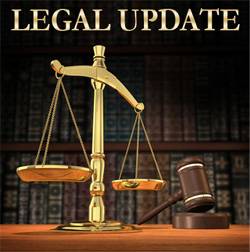A number of the congregants who attend the place of worship that I attend are licensed to carry concealed handguns. Because the cost of hiring armed, plainclothes security officers is prohibitively expensive, these concealed handgun license (“CHL”) holders are considering whether they should organize a volunteer (e.g., unpaid) group to provide armed security for the other congregants. What are the potential legal issues associated with this idea?
Answer:
In most of America, and especially in Texas, it is still possible for persons to lawfully arm themselves for the purpose of self-defense. Often, this arming involves some form of prior statutory or regulatory compliance. Fortunately, such compliance issues are usually not overly burdensome.
The Texas Concealed Handgun law provides a quick, easy, and inexpensive means for law-abiding Texas residents to obtain a concealed handgun license (CHL). The purpose of CHLs is to allow individuals to carry concealed firearms for personal protection.
When, in Texas, a person endeavors to go beyond protecting oneself (and immediate family) and provides personal protection to others, state law requires that such person be licensed under the Private Security Act (hereinafter “Act”), which has been codified as § 1702 of the Texas Occupations Code. Persons who wear a “distinctive uniform” and openly carry a firearm are referred to under the Act as “Commissioned Security Officers.” Section 1702.169. Persons who wear clothing which does not constitute a “distinctive uniform” and who carry a concealed firearm are referred to under the Act as “Personal Protection Officers.” Section 1702.201, et seq. One must first attain the status of Commissioned Security Officer before being granted the status of Personal Protective Officer. Section 1702.204.
The Texas Private Security Act makes it unlawful for persons who have not been issued a license thereunder to provide security services. A civil penalty of up to $10,000 per occurrence may be imposed on any person who violates the Act. Section 1702.381(a).
Likewise, a person (or entity) that employs a person who is required to hold a license under section 1702, but who is in violation of that requirement, also violates the Act and may also, upon proper notice, be assessed a civil penalty of up to $10,000 per occurrence. Section 1702.381(b-c). Arguably, the civil penalty which might be imposed on the “employer” could be up to $10,000 per unlicensed person. Thus, for example, an entity that “employs” ten unlicensed persons might be assessed a civil penalty of $100,000.
The legislative history of the Act strongly suggests that the term “employ,” is to be given broad meaning; that is, the term is to be understood expansively, to encompass voluntary associations of unpaid persons in places of worship, and is not to be read narrowly to mean only an employer who engages the services of an employee for compensation.
During 2013, two separate bills were introduced in the Texas legislature which, if passed, would have amended the Act to allow non-uniformed concealed carry of firearms by volunteers who serve charitable and religious organizations. Neither bill made it out of committee.
The Private Security Act does, however, contain an exception to its licensing requirements for volunteers who serve charitable and religious organizations. However, persons who take advantage of this exception may not lawfully carry firearms while providing security services – even if they possess a valid Concealed Handgun License – (and also may not wear uniforms). Section 1702.323.
There is, however, a course of action that is available to charitable and religious organizations that would provide them with armed security at economical, below-market rates.
A tax-exempt legal entity – separate and apart from the charitable or religious organization – could be formed for the sole purpose of providing security services to a single charitable or religious organization or, alternatively, to a group of such organizations (“Private Security Entity”).
The Private Security Entity would obtain a Security Company license under the Private Security Act and then hire properly-licensed volunteer Personal Protective Officers (PPOs) from among the members of the organization it serves or, alternatively, from the general workforce.
To minimize the risk of civil liability, the Private Security Entity and the charitable or religious organization it serves would enter into a contract for services, with the Private Security Company indemnifying the charitable or religious organization for any civil liability that might arise from the performance of services under the contract. The charitable or religious organization would, in turn, pay the Private Security Company an agreed-upon fee for services, which because of the Private Security Company’s not-for-profit nature and method of operations would, presumably, be much more affordable than contracting with a for-profit private security company.
For a related information, please visit: Texas Concealed Carry in Places of Worship
For more information on this topic, or other leg topics, click here: Contact Lapin Law Offices
Texas Firearms Law Attorney - Serving all 254 Texas Counties
Lapin Law Offices, P.C.
877.570.2200
Disclaimer: The information contained in this publication is provided by Lapin Law Offices, P.C., for informational purposes only and, shall not constitute legal advice or create an attorney-client relationship. The laws and interpretation of laws discussed herein may not accurately reflect the law in the reader’s jurisdiction. Do not rely on the information contained in this publication for any purpose. If you have a specific legal question, please consult with an attorney in your jurisdiction who is competent to assist you.









 RSS Feed
RSS Feed
